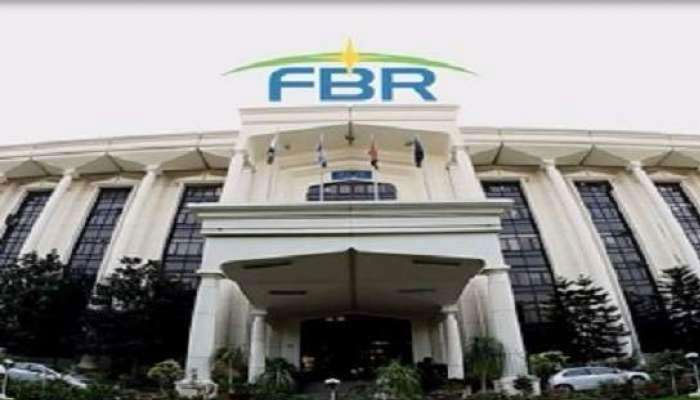FBR to get sweeping powers to impose penalties
After completion of the investigative audit, the officer of Inland Revenue may take one or more actions
ISLAMABAD: The FBR has proposed in the Finance Bill 2024-25 some major and drastic powers for imposing penalties and imprisonment on tax frauds.
According to the bill tabled in parliament, under Section 191-A of the Income Tax Ordinance, the FBR sought powers for prosecution for failure to furnish information in return of income. Any company including a banking company and an association of persons which – (a) fails to fully state all the relevant particulars or information as specified in the form of return, including a declaration of the records kept by the taxpayer; (b) furnishes blank or incomplete particulars or information as specified in the return of income; or (c) attaches blank or incomplete annexure, statements or documents where such annexure, statements or records were required to be filed, shall commit an offence punishable on conviction with a fine or imprisonment for a term not exceeding one year or both.
Under 191-B, for prosecution for non-registration, any person specified in Section 99-B, who is required to apply for registration but fails to do so, shall commit an offence punishable on conviction with imprisonment for a term not exceeding six months or a fine or both.
25-AB investigative audit: (1) Where on the basis of information from audit as provided in Sub-section (11) of Section 25, or otherwise, the officer of Inland Revenue not below the rank of assistant commissioner, on the balance of probabilities, suspects that a registered person is involved in tax fraud, he may with the prior approval of the commissioner in writing, initiate investigative audit against such person.
After completion of the investigative audit, the officer of Inland Revenue may take one or more of the following actions: (a) passing an order under Section 11-E, after providing an opportunity of being heard to the registered person under that section on all the issues arising from the investigative audit; (b) issuing the best judgment assessment order under Section 11-D, where the registered person fails to produce any accounts, document records or evidence or any other relevant document that may be required by the officer of Inland Revenue; (c) blacklisting the registered person under Section 21; and (d) imposing penalty and causing prosecution of the registered person.
The person who commits, causes to commit or attempts to commit tax fraud shall pay a penalty of Rs25,000 or one hundred percent of the amount of tax evaded or sought to be evaded, whichever is higher. Without prejudice to the above, he shall also be liable, upon conviction by a special judge to imprisonment for a term which may extend to five years if the tax evaded or sought to be evaded is up to five hundred million or above, and which may extend to 10 years if the tax evaded or sought to be evaded is one billion and above and fine which may extend to an amount equal to the amount of tax evaded or sought to be evaded.
The person who abets or connives at commissioning of tax fraud shall be liable, upon conviction by a special judge, to imprisonment for a term which may extend to five years if the tax evaded or sought to be evaded is up to five hundred million or above and which may extend to 10 years if the tax evaded or sought to be evaded is one billion and above, and with fine which may extend to an amount equal to the amount of tax evaded or sought to be evaded.
-
 Emma Roberts Stars In 'A Body In The Woods'
Emma Roberts Stars In 'A Body In The Woods' -
 'Our Estrangements Can Kill Us': Meghan's Co-star Weighs In On Anthony Hopkins Interview
'Our Estrangements Can Kill Us': Meghan's Co-star Weighs In On Anthony Hopkins Interview -
 ‘Tone Deaf’ Andrew Called Out Over Arrogant Behaviour Amid Epstein Scandal
‘Tone Deaf’ Andrew Called Out Over Arrogant Behaviour Amid Epstein Scandal -
 Singing, Dancing & Outperforming: Watch China’s Robot Fair Ahead Of Spring Festival 2026
Singing, Dancing & Outperforming: Watch China’s Robot Fair Ahead Of Spring Festival 2026 -
 WhatsApp Under Fire: EU Steps Up Pressure On Meta Over Claims Of Blocking AI Rivals
WhatsApp Under Fire: EU Steps Up Pressure On Meta Over Claims Of Blocking AI Rivals -
 Steven Van Zandt Criticizes Bad Bunny's 2026 Super Bowl Performance
Steven Van Zandt Criticizes Bad Bunny's 2026 Super Bowl Performance -
 Katie Price Seen With New Hubby Lee Andrews Weeks After Tying The Knot
Katie Price Seen With New Hubby Lee Andrews Weeks After Tying The Knot -
 Biggest Order Yet Issued Against Andrew Mountbatten-Windsor: King Charles You Have To’
Biggest Order Yet Issued Against Andrew Mountbatten-Windsor: King Charles You Have To’ -
 ByteDance’s Seedance 2.0 Marks New Era Of Cinematic AI-generated Videos: Here’s How
ByteDance’s Seedance 2.0 Marks New Era Of Cinematic AI-generated Videos: Here’s How -
 Struggling With Obesity? Here's How To Manage It
Struggling With Obesity? Here's How To Manage It -
 How Epstein Scandals Are Impacting King Charles’ Healing As Stress Refuses To Relent: ‘Could Spell His End’
How Epstein Scandals Are Impacting King Charles’ Healing As Stress Refuses To Relent: ‘Could Spell His End’ -
 Why Prince William Releases Statement On Epstein Scandal Amid Most 'challenging' Diplomatic Trip?
Why Prince William Releases Statement On Epstein Scandal Amid Most 'challenging' Diplomatic Trip? -
 Ciara, Russell Wilson Become Matchmakers For Pals?
Ciara, Russell Wilson Become Matchmakers For Pals? -
 Historic Mental Health Facility Closes Its Doors
Historic Mental Health Facility Closes Its Doors -
 Top 5 Easy Hair Fall Remedies For The Winter
Top 5 Easy Hair Fall Remedies For The Winter -
 Japan Elections: Stock Surges Record High As PM Sanae Takaichi Secures Historic Victory
Japan Elections: Stock Surges Record High As PM Sanae Takaichi Secures Historic Victory




